From ₹22 Billion Valuation to 99% Collapse: How BYJU'S Aggressive Marketing Strategy Destroyed India's Biggest EdTech Empire
- Nayan Tomar
- Aug 5, 2025
- 5 min read
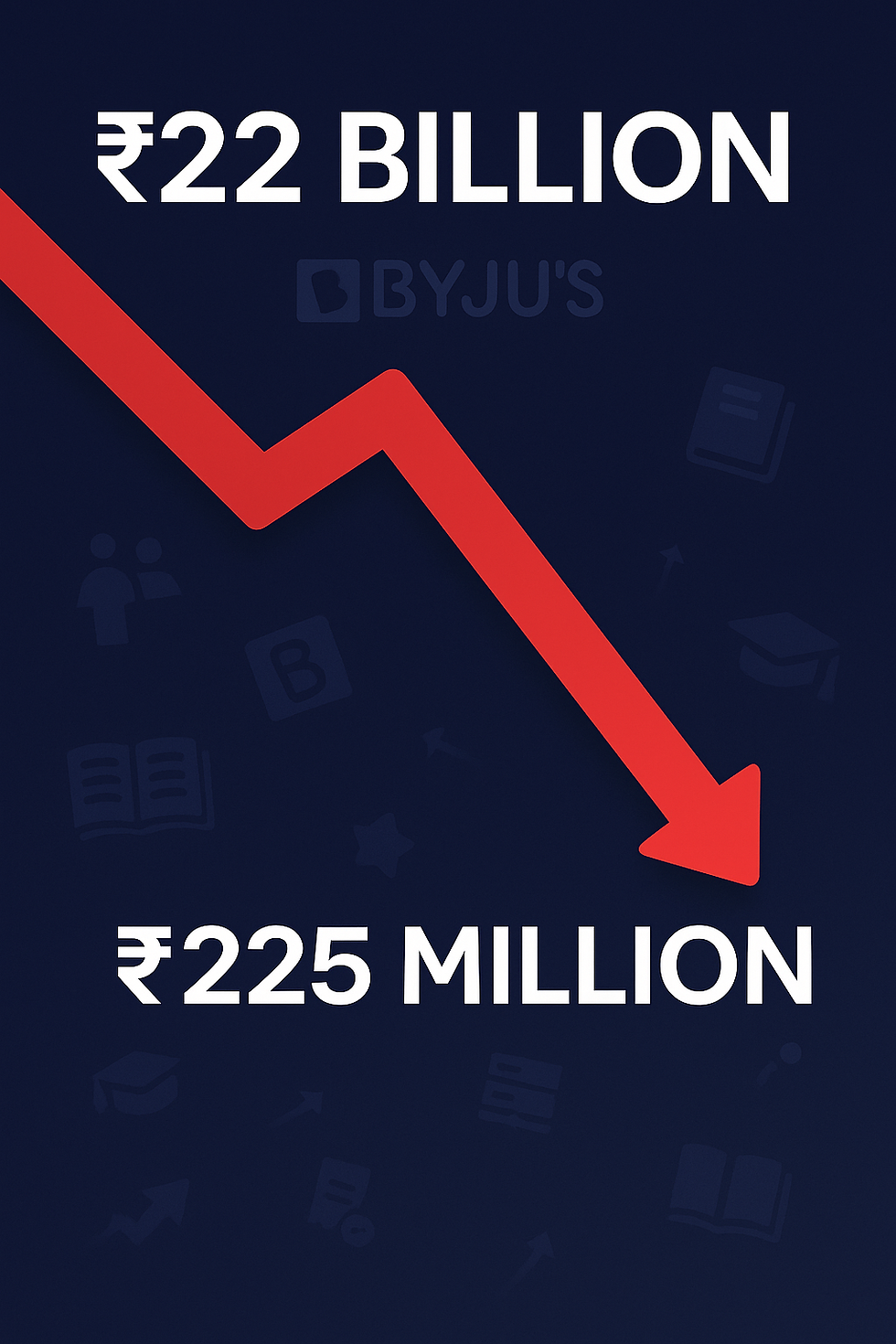
Reading Time: 5 minutes
From India's most valuable startup at $22 billion valuation to seeking funding at just $225 million a 99% collapse that shocked the business world. BYJU'S spectacular downfall reveals how aggressive growth marketing tactics without sustainable unit economics inevitably lead to brand destruction and regulatory backlash, proving that celebrity-driven credibility and high-pressure sales funnels cannot substitute for ethical business fundamentals.
The Celebrity-Driven Illusion: When Star Power Masks Business Reality
BYJU'S built their marketing empire on celebrity endorsements, most notably Shah Rukh Khan as their primary brand ambassador. They selected Shah Rukh Khan as their brand ambassador to grab mass attention and push information to every target household, while also bringing on Mahesh Babu to target the Telangana and Andhra Pradesh markets. The strategy seemed brilliant - leveraging India's obsession with Bollywood and cricket to build instant credibility for an educational platform.
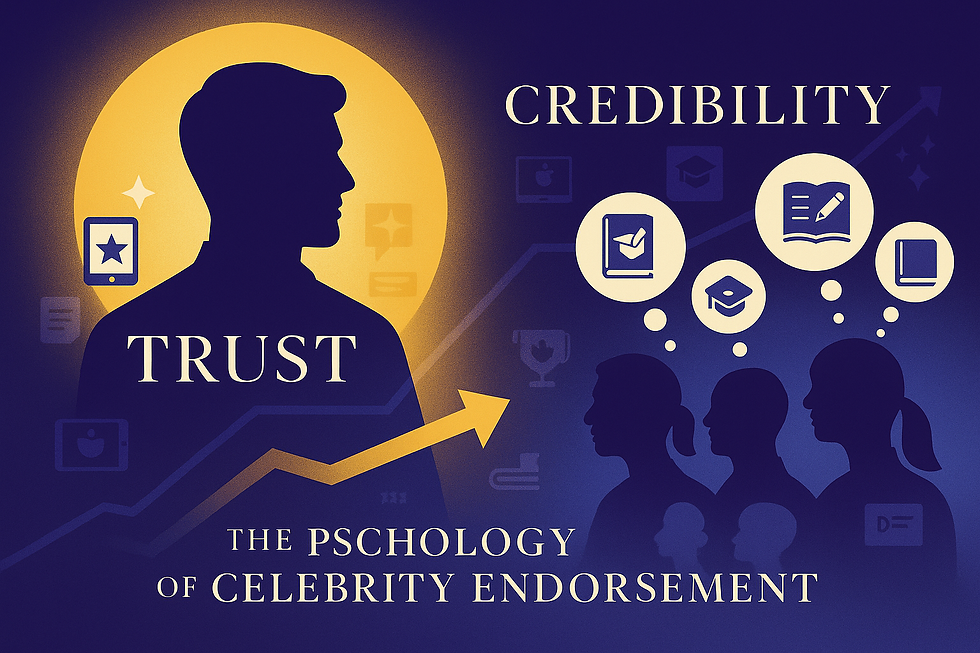
The celebrity endorsement psychology worked initially because it bypassed rational evaluation. Parents who might scrutinize educational content quality instead relied on Shah Rukh Khan's trustworthiness as a father figure. This emotional shortcut enabled BYJU'S to scale rapidly without proportional investment in product quality or customer satisfaction systems.
BYJU'S spent ₹450 crore on advertising in FY19, representing a 239% increase from the previous year. This massive marketing expenditure created market dominance through omnipresence rather than genuine value proposition. The celebrity-driven approach generated awareness and trial subscriptions but failed to address the fundamental question: did the product deliver educational outcomes worth the premium pricing?
The celebrity strategy backfired when Shah Rukh Khan's personal controversies affected brand perception, leading BYJU'S to pull advertisements. More critically, the celebrity endorsement model created external dependency for brand credibility - when controversies emerged around aggressive sales tactics and misleading advertisements, the celebrity association became a liability rather than an asset.
Aggressive Sales Funnel Optimization: When Growth Hacking Becomes Customer Exploitation
BYJU'S perfected what appeared to be sophisticated funnel optimization but was actually high-pressure sales manipulation targeting vulnerable parents. Parents complained of aggressive sales tactics, including misleading information and pressure to buy subscriptions. The company's sales approach exploited parental psychology by creating urgency around children's educational futures.
Their sales methodology involved offering free trial classes to children, then using emotional manipulation to convince parents that expensive subscriptions were essential for their child's academic success. Sales representatives were trained to position BYJU'S as the difference between success and failure in competitive exams, creating artificial scarcity and fear-based decision making.
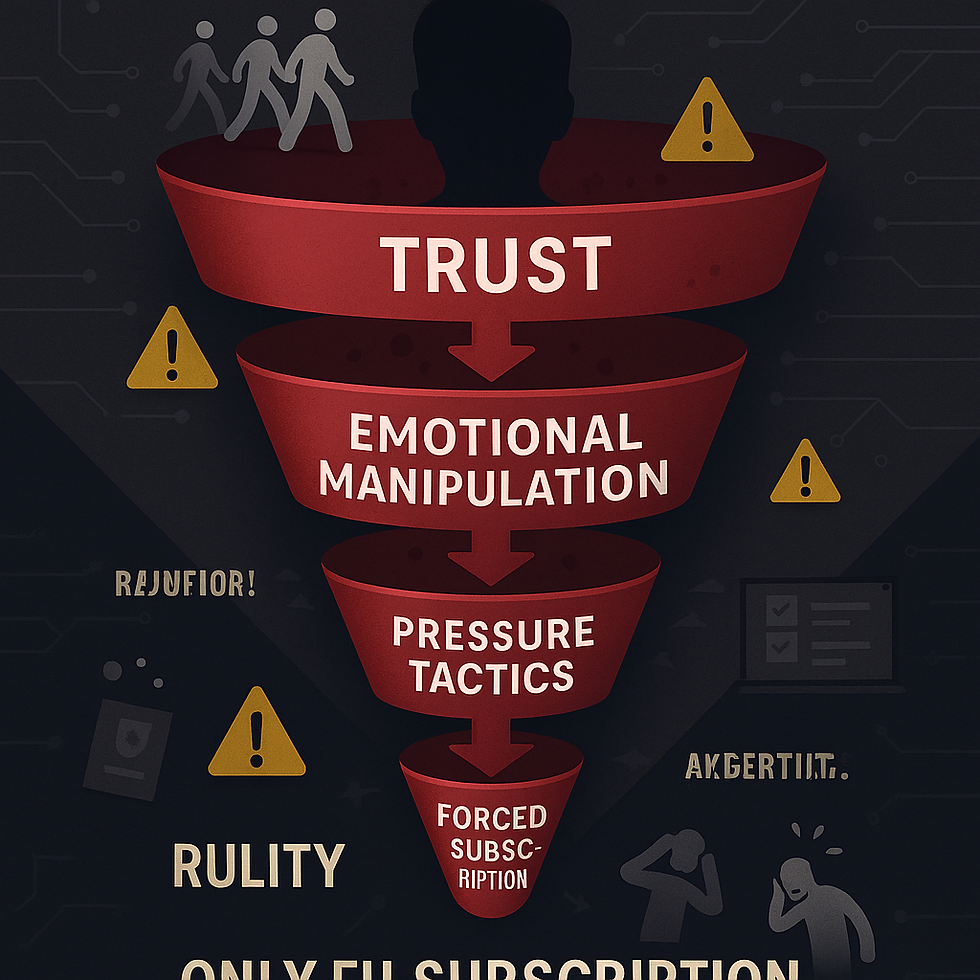
The aggressive approach generated short-term revenue growth that impressed investors and justified massive valuations. However, these tactics led to data privacy concerns and complaints about forced subscriptions, creating negative word-of-mouth that eventually overwhelmed positive celebrity messaging. Parents who felt manipulated into purchases became vocal critics rather than brand advocates.
The sales optimization strategy violated the fundamental marketing principle that customer lifetime value depends on satisfaction rather than acquisition volume. BYJU'S prioritized enrollment numbers over educational outcomes, creating unsustainable economics where customer acquisition costs exceeded retention value due to high churn rates from dissatisfied users.
The Unit Economics Disaster: When Marketing Spend Exceeds Value Creation
BYJU'S marketing strategy collapsed because lavish marketing spends contributed significantly to their financial crisis, revealing that aggressive growth tactics without sustainable unit economics lead to inevitable business failure. The company's approach of spending massive amounts on celebrity endorsements and advertising while neglecting product quality and customer satisfaction created a house of cards that eventually collapsed.
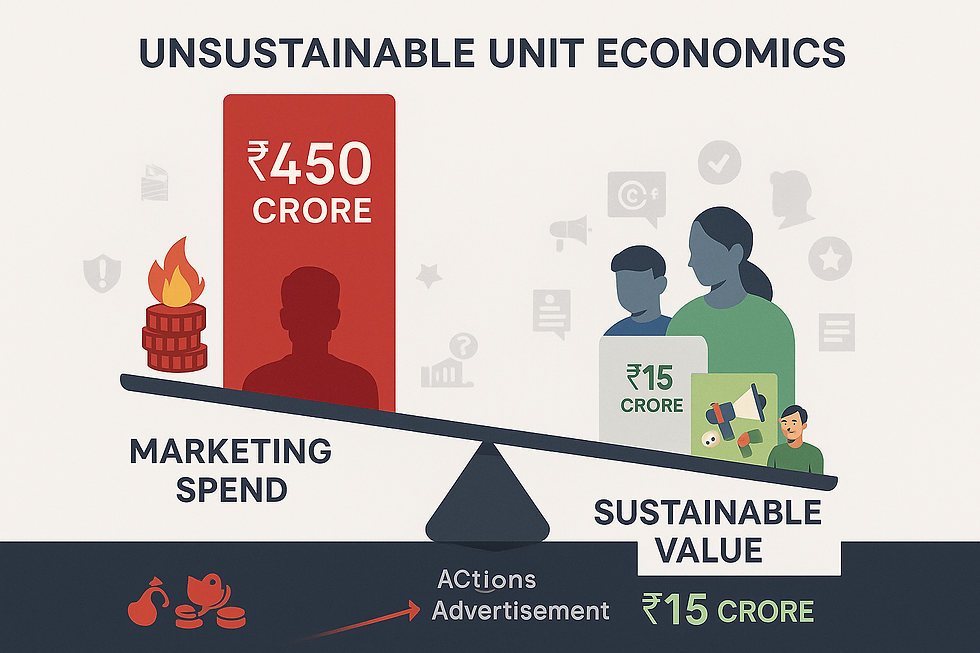
Marketing-Led Growth vs. Value-Led Growth
The fundamental flaw in BYJU'S strategy was prioritizing marketing-led growth over value-led growth. Traditional marketing wisdom suggests that exceptional products generate organic word-of-mouth that reduces customer acquisition costs over time. BYJU'S followed the opposite approach - using marketing intensity to compensate for product limitations and customer dissatisfaction.
BYJU'S employed aggressive content distribution across YouTube, Facebook, Instagram, and offline sales, but this omnipresence required continuous investment to maintain market position. Unlike sustainable businesses where satisfied customers become referral sources, BYJU'S needed constant marketing pressure to overcome negative sentiment from previous customers.
The marketing-first approach created dependencies on external funding to sustain growth rather than generating self-reinforcing revenue cycles. When funding markets tightened and regulatory scrutiny increased, BYJU'S could not maintain their marketing spend levels, leading to rapid market share decline and brand deterioration.
Regulatory Backlash and Brand Destruction
BYJU'S aggressive marketing tactics eventually attracted regulatory attention that destroyed their business model. The National Commission for Protection of Child Rights (NCPCR) summoned BYJU'S CEO due to their aggressive marketing and sales tactics, while multiple consumer protection cases emerged from dissatisfied parents who felt deceived by marketing promises.
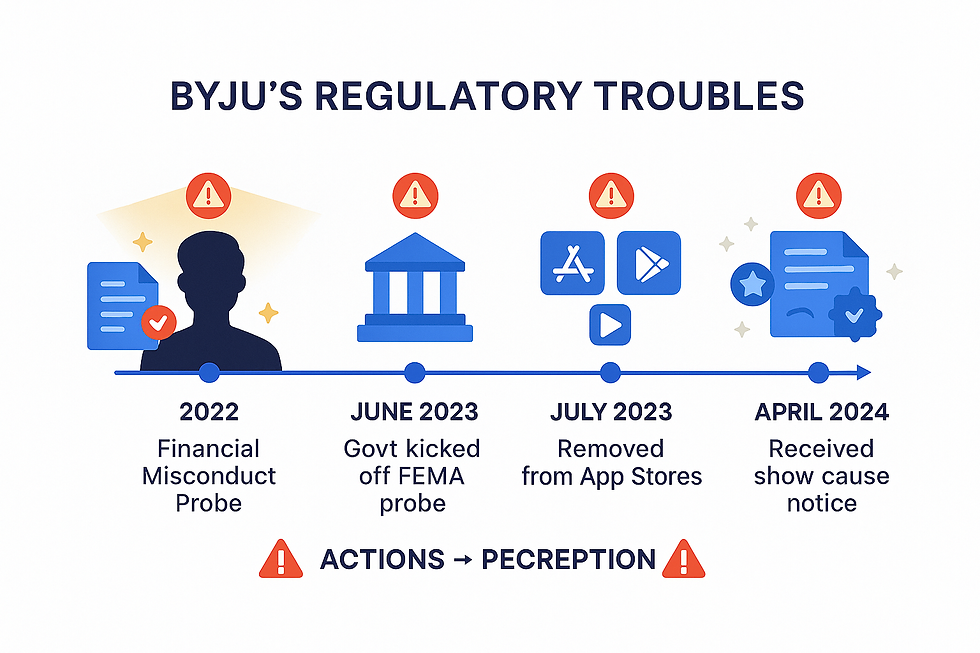
The regulatory scrutiny revealed the gap between marketing claims and actual educational outcomes. BYJU'S marketed their platform as revolutionary educational technology, but investigations showed that many students experienced minimal learning improvement despite expensive subscriptions. This disconnect between marketing promises and product reality created legal liability and reputation damage.
In May 2025, the BYJU'S Android app was delisted from the Google Play Store due to unpaid AWS bills, demonstrating how operational mismanagement compound marketing-created problems. The company that once spent hundreds of crores on celebrity endorsements could not maintain basic technical infrastructure, revealing the fundamental resource misallocation that aggressive marketing strategies often create.
Strategic Lessons: Building Sustainable Growth vs. Burning Marketing Budgets
BYJU'S collapse from $22 billion peak valuation to seeking $200 million at just $225 million valuation offers critical insights for marketing leaders about sustainable vs. unsustainable growth strategies.
First, celebrity endorsements cannot substitute for product quality and customer satisfaction. BYJU'S proved that star power generates initial awareness and trial but cannot maintain market position when product experience fails to match marketing promises. Sustainable marketing requires authentic value propositions that celebrity endorsement can amplify but never replace.
Second, aggressive sales tactics create short-term revenue spikes but long-term brand damage. High-pressure sales approaches may optimize immediate conversion rates but generate negative word-of-mouth that eventually overwhelms marketing messaging. The lifetime cost of customer dissatisfaction typically exceeds the lifetime value of forced conversions.
Third, marketing-led growth strategies require proportional investment in product quality and customer success systems. Companies cannot indefinitely use marketing intensity to compensate for product limitations. BYJU'S collapsed because they allocated resources to customer acquisition rather than customer value creation, making growth unsustainable when marketing budgets contracted.
The ultimate insight for marketers: sustainable growth requires marketing strategies that become less expensive over time through customer satisfaction and organic referrals, not more expensive through increasing acquisition costs and reputation management. BYJU'S demonstrated that aggressive marketing without ethical business fundamentals inevitably leads to spectacular failure regardless of initial valuation success.
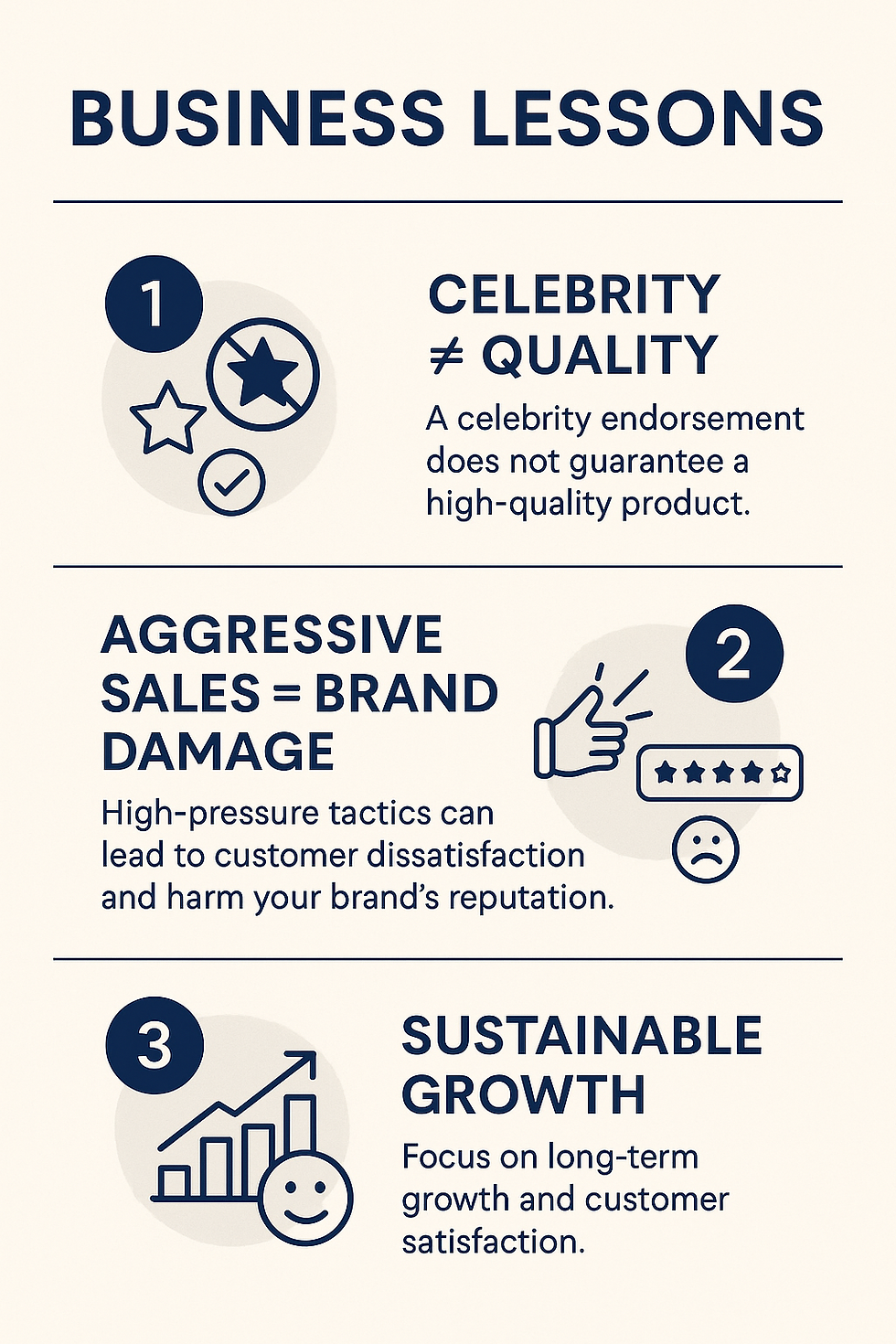
BYJU'S setbacks including alleged accounting irregularities and mismanagement created an existential crisis that no amount of celebrity endorsement or aggressive sales tactics could overcome. The lesson for marketing leaders: build brands on sustainable value creation rather than unsustainable marketing manipulation.
.png)
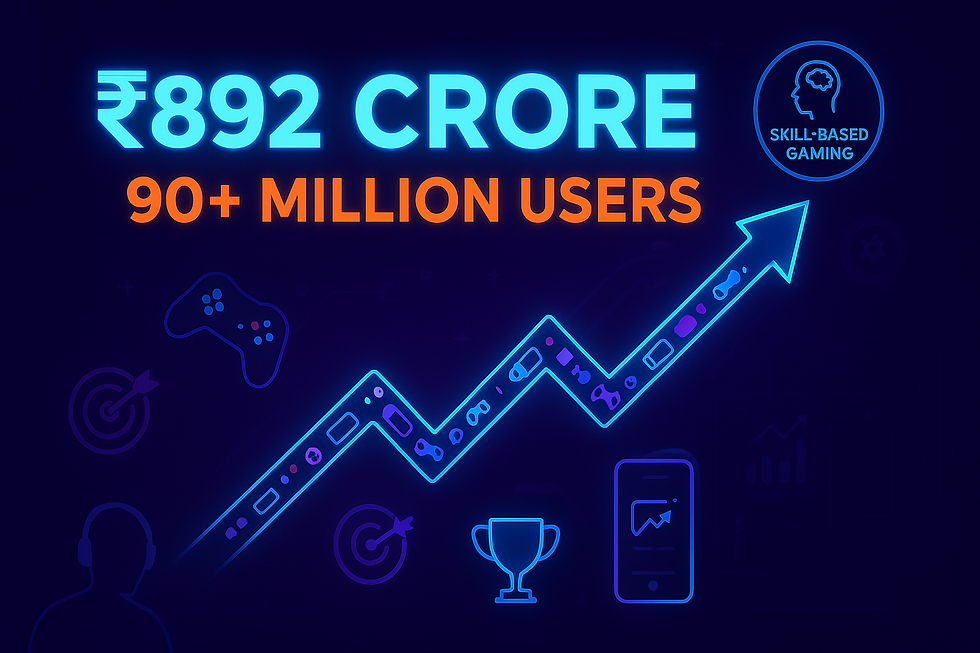
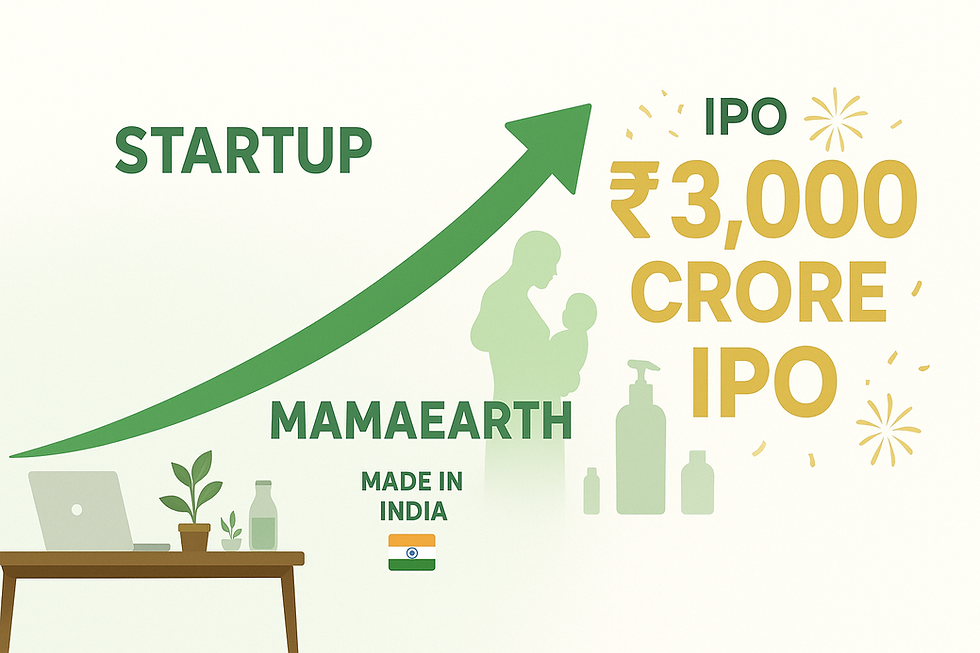
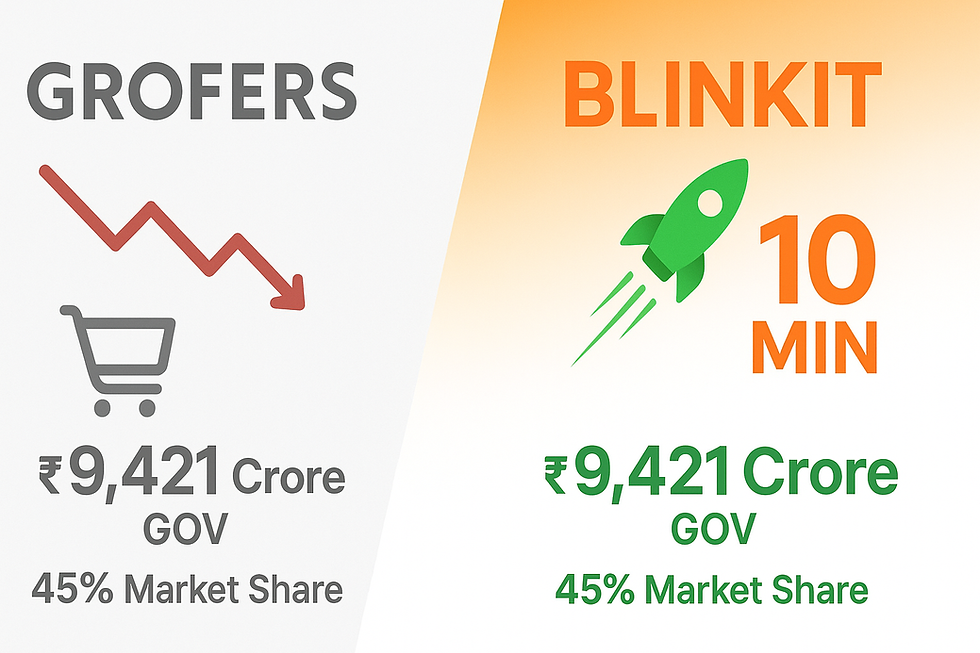
Comments